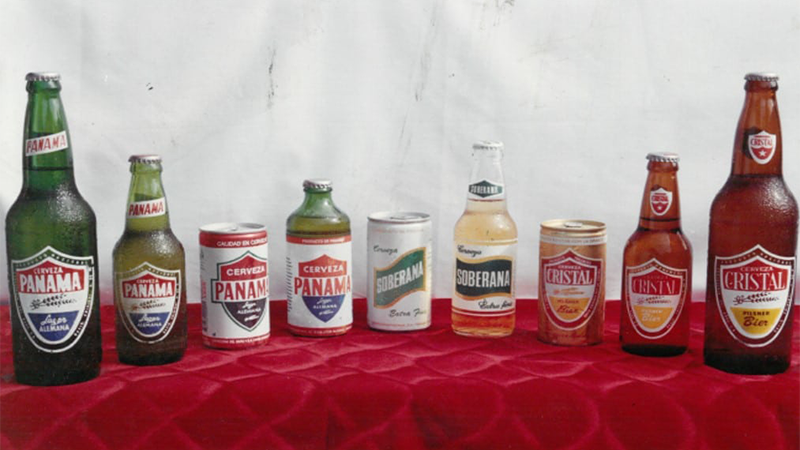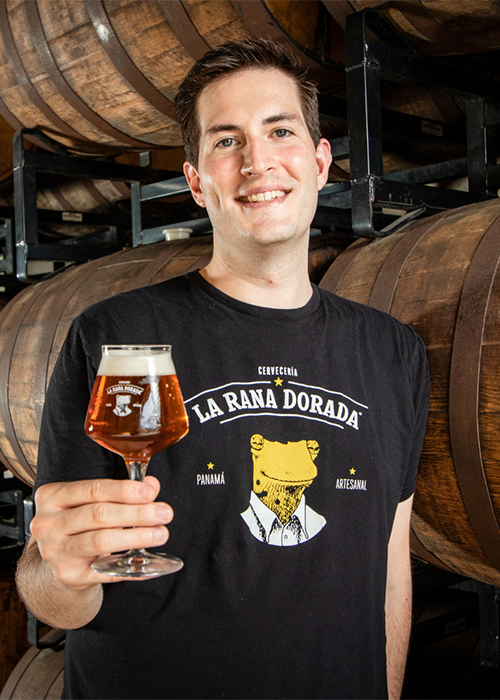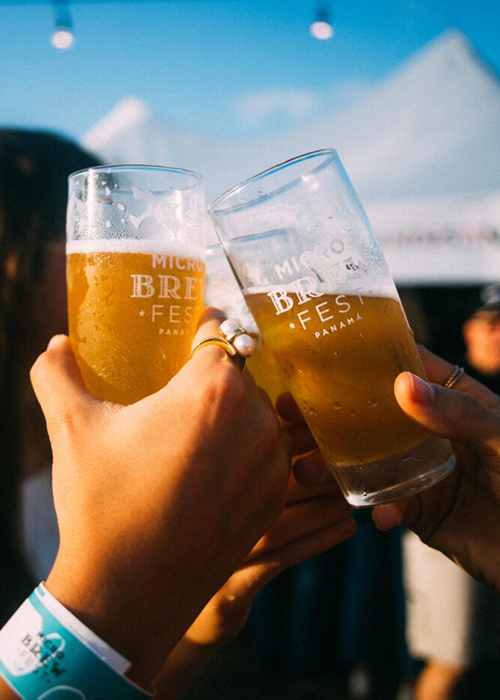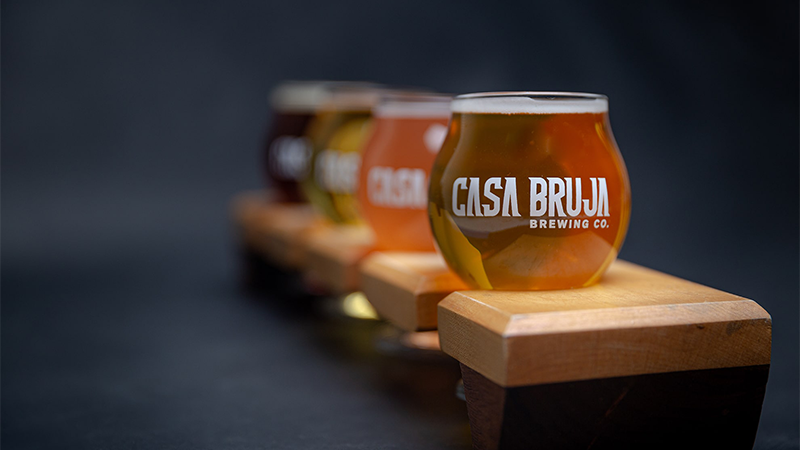The various influences of Spain, Colombia, France, and America on Panama are nowhere more evident than in Panama City’s Casco Antiguo district. In 16th-century Spanish ruins among a UNESCO World Heritage site sits American Bazaar, a tribute to a turn-of-the-century department store and one of the city’s newest restaurants. The food and music are definitely American, and the beer taps will remind you of those at your favorite brew pub. But with names like Fula, Chivo Perro, and Guachimán, Americans won’t find these at their local bodegas or corner bars.

Panama loves its beer; the country consumes the most per person of any Latin American nation and 20th most in the world. For over 100 years, the beverage has been produced there in one form or another. Balboa beer was founded in 1910 and is now part of the SABMiller group. Panama beer, with its recognizable green bottles, started production in 1959 and is currently a subsidiary of Heineken. But while they and import brands have historically helped quench the country’s thirst, the industry for many years lacked any kind of craft or microbrews.
That’s all changing. In 2010, brewpub La Rana Dorada opened its doors, only five years behind Istmo, the country’s first brew pub. Hernán Justiniani joined as La Rana Dorada’s general manager in 2019 but had worked with the brewery since its inception. “I always admired the business model Rana had; the beer was amazing [and] since their beginning, they make you feel at home,” Justiniani says. Rana’s IPA took gold at the Copa Cervezas de América — one of Latin America’s biggest beer competitions — in 2014. By then, it had more local competition.
Don’t Miss A Drop
Get the latest in beer, wine, and cocktail culture sent straight to your inbox.

Jonathan Pragnell discovered his love for craft beer while attending university in the U.S. In 2013, he co-founded the country’s first craft brewery and bottling plant, Casa Bruja Brewing Co. Antonio González Ruiz, head brewer for Cervecería Feroz, was bitten by the craft beer bug in New York City after sipping an eye-opening IPA. While they both experimented with homebrewing and took different paths to hone their skills, Pragnell and Ruiz returned home to Panama City determined to share what they had experienced with their countrymen.
“It’s always been easy to bring stuff to Panama from the States,” Pragnell says. “Logistics are so simple that we’ve always had tons of access to American beer. But craft beer has its difficulties in transportation.” That gave local brewers the opportunity to share with Panamanians what they couldn’t find on store shelves — but they weren’t embraced overnight. “Many Panamanians had this idea that imported is better than local,” explains Ruiz. “It’s been a project for the whole industry, doing food pairings, beer tastings; at Feroz, we’ll do a brewer talk a couple times a month where I talk about our beers, processes, or beer styles. It also helps that every year in February, we have the Micro Brew Fest, which is one of the biggest beer festivals in Central America.”

Micro Brew Fest Panamá, which celebrates its 10th anniversary in February 2023, was founded in part by Pragnell as an opportunity to simply share and enjoy beer with friends. “My group of friends and I, we all really like craft beers. They [said], ‘Let’s do a craft beer festival,’ and that’s how it started,” Pragnell says. “When we started, it was like 1,000 people. Our last one in February 2020 was around 12,000. And it’s just beer, no music or anything else; it’s a way for people to meet up, drink, and catch up.”
It’s this bond that keeps the brewing business in Panama City from becoming overly complicated. While places like Casa Bruja and La Rana Dorada started with few craft competitors, Pragnell estimates there are now 35 breweries in the market. But there’s no brewer’s association or organization collating data; the government counts beer sales as a whole without breaking out specifics. It’s not of particular concern. “Here, things have always been simple,” shrugs Pragnell. “Most of the brewers are all friends and we get along; if I have an issue, I just call another brewer and we talk and have beers.”
Brewing in Panama City brings its own unique challenges. “One of the main issues is that we have to order everything from somewhere else — equipment, malt, hops, yeast,” says Justiniani. “The heat and humidity also pose an issue, and it can really affect the equipment.” Ruiz is even starting a lab in Feroz so he can create his own yeast bank. Brewing here also has its benefits, however, like access to abundant natural resources. “As a tropical country, we have such a big variety of fresh fruits we can find and use in our recipes,” notes Justiniani. “For instance, our best-selling seasonal beers — a passion fruit sour and coco porter — include local fruits.”

“Our access to American beers, I think that’s one of the main reasons our craft beer is so good, because we’ve always had a good reference point,” says Pragnell. Brewers took that reference point and ran with it, infusing their products with local flair and Panamanian passion. Now, others are noticing. Ruiz won silver at the 2017 Copa Cervezas de América with his amber ale, convincing him to brew full-time and open Feroz in 2019. One of the crowning achievements was Casa Bruja’s 2018 silver medal at the World Beer Cup for its Gose Frambuesa. More recently, at the 2022 Copa Cervezas de América, Casa Bruja brought home gold for its Catharina sour, and La Rana Dorada captured a bronze medal for its German-style Oktoberfest and gold for its International-Style Pilsner.
Craft brewing in and around Casco Antiguo isn’t the only thing that’s changing in Panama City; American Bazaar is part of the luxury Hotel La Compañía next to the brand-new Sofitel hotel. Lamastus Family Estates, with some of the most expensive coffee beans in the world, owns Sisu Coffee Studio a couple of streets down. And while La Rana Dorada’s location in hotspot Casco remains popular, there’s now a healthy amount of competition. Currently, most breweries are focused on growing taprooms instead of getting into exporting. For now, Panama City’s craft beer is a hidden treasure you simply have to be there to enjoy.